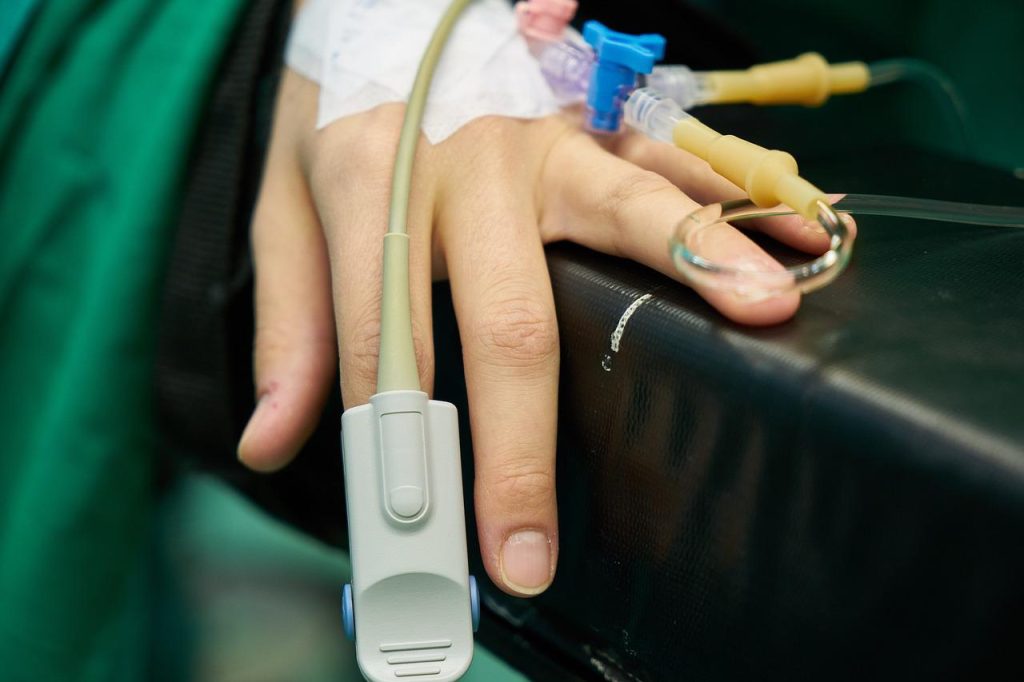You’re cutting vegetables and you accidentally cut your finger. The pain isn’t terrible, but the cut looks deep and is bleeding heavily. What do you do?
Your child fell while playing and now she can’t put weight on her swelling ankle. She’s crying in pain while having cold sweats. What should you do?
Other things can also happen: You wake up in the middle of the night with intense, bursting abdominal pain. Your friend stumbles while going up a flight of stairs. Your baby develops red marks and spikes a high fever suddenly.
These are common dilemmas many people face regularly. And most often, they’re not sure where to go for care and treatment — especially if their primary doctor is unavailable.
That’s why it’s vital to know where to seek treatment when faced with certain kinds of medical situations. In this blog, we explore the differences between an emergency room vs urgent care.

The Differences Between an Emergency Room vs Urgent Care
One of the differences between the emergency room and urgent care is the severity of health problems they handle and treat.
The emergency department manages life- or limb-threatening health conditions of people of all ages. It’s best for anyone who requires immediate medical attention. On the other hand, urgent care manages minor illnesses or injuries or if you don’t have other underlying health conditions. For example, a mild earache can be treated in urgent care, but if it’s with a high fever, it’s important to have it checked in the emergency room.
Another difference between the emergency room vs urgent care is the number of hours and staff members that work in the department.
Emergency room departments are open and staffed 24/7 hours with nurses, physician assistants, and doctors who are trained to deliver emergency care. They have access to specialists and equipment, as well as laboratory resources needed to diagnose and care for severe health conditions.
Urgent care clinics fill the gap when you’re sick or injured, but your primary care physician isn’t available. They operate within set work hours and a list of conditions they can treat. When needed, they can order basic lab and imaging tests to help develop treatment plans for patients. They are also less expensive and have shorter wait times compared to emergency rooms.
When Should You Go to the ER?
As the name suggests, emergency rooms (ERs) are best for emergency situations. Numerous medical conditions are considered emergencies because they require advanced or rapid treatments. If you have a life-threatening condition, go straight to your nearest ER.
You should go to the ER for the following health concerns:
- Allergic reactions (including difficulties breathing, swallowing, or swelling lips)
- Broken bones or dislocated joints
- Cuts that may need stitches
- Fainting or a sudden change of mental state (including a concussion or confusion)
- Fever with a rash
- Head trauma or injuries
- Loss of vision or hearing
- Multiple injuries like broken bones, face, pelvis, ribs, or skull
- Pain in your arm, chest, or jaw
- Pneumonia
- Seizures or stroke-like symptoms
- Serious burns
- Severe abdominal pains
- Severe cold or flu symptoms
- Severe or uncontrolled bleeding
- Shortness of breath
- Slurred speech
- Sudden, severe headache, or paralysis
- Vaginal bleeding when pregnant
- Weakness or numbness
Keep in mind that you should never drive yourself to the ER if you have difficulty breathing, life or limb injuries, shortness of breath, or signs of heart attack or stroke. It’s best to call 911 during these situations.

When Should You Go to Urgent Care?
Urgent care centers are same-day clinics that are best if you have conditions that need to be treated right away but are considered non-emergency situations. They’re a viable option if you can’t get an appointment with your doctor right away, as urgent care specialists can evaluate and treat a range of medical problems.
You should go to an urgent care center if experience any of the following:
- Abdominal pain
- Allergies
- Animal bites
- Back or muscle pains
- Blood work
- Bronchitis
- Bumps, cuts, and scrapes
- Colds, cough, sore throat, and other flu-like symptoms
- Dehydration, diarrhea, nausea, and vomiting
- Ears, nose, or sinus pains
- Eye irritation, swelling, or pain
- Fever
- Infections in body systems, like upper respiratory or urinary tract infections
- Lab services including blood tests, vaccinations, and x-rays
- Minor levels of allergic reactions, asthma, burns, cuts, headaches, and fractures
- Pain with urination
- Rashes and other skin conditions
- Sprains and strains
- Wheezing or shortness of breath
However, it must be noted that urgent care clinics are not substitutes for your primary care physicians. If your symptoms come on gradually or you already know the diagnosis, it’s best to call your primary care doctor’s office as they have the best knowledge of your health history and other medical conditions. Be sure to follow up with them after your emergency and get ahead of any further issues. Also, if the urgent care provider thinks you need a higher level of care, they will send you to the ER. There are certain things that urgent care simply can’t provide but the emergency room can.
While they are closely similar, knowing the differences between the emergency room vs urgent care is crucial. It helps you receive the right diagnosis, care, and treatment you need based on your health condition.
One final tip: While there’s only so much we can do to plan for emergencies, take a note of the nearest emergency room and urgent care to your home/office, and check in advance that they accept your health insurance. That way, if an emergency does arise, you’ll already know where to go.













